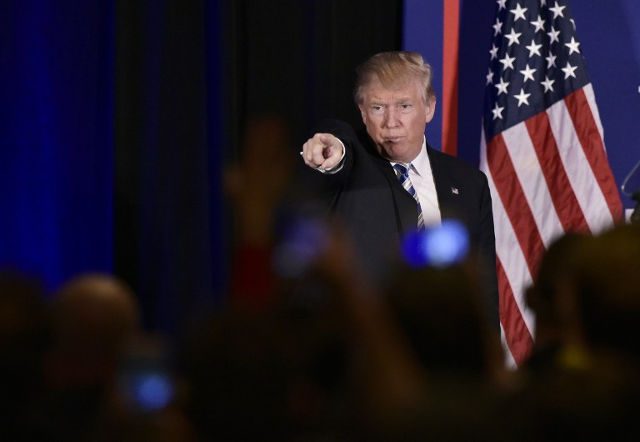SUMMARY
This is AI generated summarization, which may have errors. For context, always refer to the full article.

It’s 7:03 am here in Amsterdam, and the sun has yet to rise.
The few beers last night notwithstanding, I didn’t sleep well, tormented by the knowledge that soon, a dictator will be buried as a hero in my home country. I grew up taking pride in the democracy that my people fought hard to defend, only to see the person who threatened it the most be honored by the people whose very futures he had ruined.
On the other side of the world, a bigot and a racist is on the verge of being elected the leader of a nation that once prided itself as the “land of the free,” a man who has threatened the sense of belonging of many Americans in their homeland, and the sense of security many of us have for the future of the world and of the planet.
Here in Europe, the situation is no brighter. No longer at ease, many Europeans are beginning to close their hearts to the world; it is as if the fraternal and triumphant message of Beethoven’s 9th is fading away. Amid concerns over terrorism and immigration, the rise of Marine le Pen of France, Geert Wilders of the Netherlands, and the Freedom Party of Austria speak of the return of far-right nationalism in Europe – one whose previous visitation brought conflict and unspeakable suffering.
~~~
Just a few years ago, when I started my graduate studies here, Europe felt like a safe haven.
The old world, which has withstood the passing of centuries, carried with it a stability that seemed as unshakable as the great cathedrals of France. And like the leaning tower of Pisa which looks precarious but whose underlying foundations are beyond question, all of Europe’s shakiness seemed to be superficial; there was optimism that whatever crisis faced would eventually be overcome – and the European project of integration will continue.

Just a few years ago, the idea that Ferdinand Marcos would be buried in the Libingan ng mga Bayani seemed unthinkable as Francisco Franco having a statue of honor in the Madrid’s Plaza Mayor. The fact that no law was made to ensure that Marcos will not be so honored by a future leadership speaks to our faith that no legislation was required to enforce our conscience and our memories.
Just a few years ago, the thought of Donald Trump becoming the US President – or even becoming a presidential nominee – was a joke just as funny as the man himself. How can someone who has openly incited racist distrust of the current president, someone whose business practices were as dubious as his morality, someone who denies the reality of climate change, be deemed worthy of the most powerful office in the world?
Even today, experts are beginning to strive for an explanation for what the world is going through. They speak of people’s anger at the “establishment” arising from feelings of being left behind by the forces of globalization – and of the nostalgia for dictatorships past as arising from people’s disillusionment over the failed promise of democracy.
The very idea of expert knowledge, however, has been thrown into question: how can everyone be so wrong? Virtually every pundit, and every single poll predicted the defeat of Brexit – and of Trump – except for the two polls that really mattered. It seems that for future elections, George Orwell – not Nate Silver – should be our guide.
As for me, I should have listened to the shuttle driver in Connecticut who told me that Trump was going to win. Having just watched the first presidential debate with my sister in Massachusetts the night before, I felt incredulous that someone with total ignorance of foreign affairs – beyond a few mantras – would still hold credibility among his supporters. But as the driver narrated his personal experiences and observations: of failed wars, of disappearing jobs, and of his perception of people of color being prioritized over “ordinary Americans” like him, I realized that I shouldn’t be dismissing him right away.
Perhaps by sincerely trying to understand the views of the Marcos loyalist, the Trump fan, the Brexiter, and the many other groups around the world with pent-up grievances – and how we can best communicate with them – we may yet avert far-worse catastrophes.
~~~
Safe in the warmth of one’s bed, lost in a state of near-drowsiness, one can ward off those thoughts by slipping into realms of fantasy – or by entertaining the thought that everything was just a bad dream. But time is running out.
Very soon, I have to rise up and confront what lies ahead – and find reason to keep hoping that a tomorrow, no matter how distant, will be brighter.
Yesterday, Barack Obama said that the sun will rise in the morning. But why do I have a feeling that I woke up in a different world? – Rappler.com
Gideon Lasco is a physician, medical anthropologist, and commentator on culture and current events. His essays have been published by the Philippine Daily Inquirer, Singapore Straits Times, Korea Herald, China Post, and the Jakarta Post.
Add a comment
How does this make you feel?
There are no comments yet. Add your comment to start the conversation.